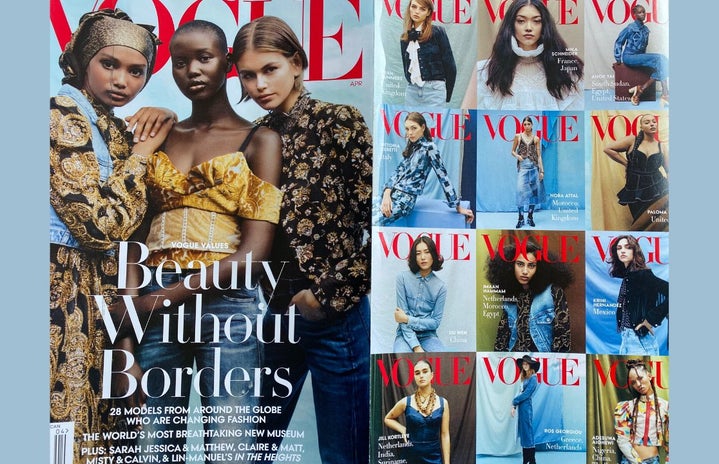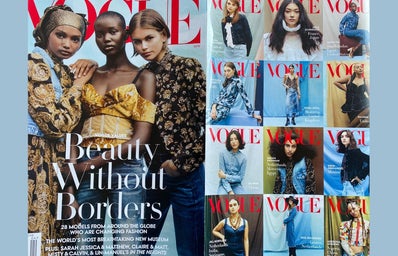Looking at past trends in fashion, yearning to forget the days where tribal leggings and moustache t-shirts were plastered in every high street shop, it’s easy for us to cringe and objectively state that they are outdated or unfashionable, regardless of the person wearing them. Despite our dark fashion pasts that haunt us through our parents Facebook pages, the fast paced, dynamic sphere of fashion trends that we continue to be influenced by when scrolling on social media allow us to begin to discover our own sense of identity, expression and self-empowerment. A July 2020 Tiktok and Twitter trend that questioned whether fashion is defined by the clothes, or by the body that wears it swept the internet and caused explosive debates, helping to redefine the meaning of ‘fashionable’ as we know it.
Youth activist Rayne Fisher Quann questioned whether in our society ‘fashionable’ really means ‘skinny’, using Twitter as a voice of expression. As a female young adult, the promotion of a healthy body image, and the understanding that beauty comes in all shapes, sizes and colours remains to be an important message to remember, especially when there is an insane amount of exposure to the harmful, manufactured version of beauty that circulates the internet. The viral tweet, that gathered the attention of half a million twitter users called attention to the vile body shaming executed by spiteful trolls, who attacked an image of two plus sized women walking down the street. A wave of users stood in agreement with the message Quann presented, united by the idea that when skinnier models such as Bella Hadid have worn this type of aesthetic ‘that could be featured on a ‘80’s casual inspo’ Pinterest board’, they have received praise for their sense of style and desirable wardrobes. Through this comparison, it is easy to see how much influence our own bodies have on the type of fashion trends we choose to participate in, as certain outfits are proven to only be ‘trendy’ when worn by the thin and wealthy.
After actively reading through similar posts, we are able to recognise our own participation in this poisonous outlook, thinking back to all of the times we might have avoided wearing an item we had been inspired to buy due to our own body insecurities and differences. The 2012 #bodypositive movement continues to grow as we move through 2021 with versatile artists diversifying their designs and exemplifying models of all shapes and sizes. While this should certainly be celebrated, the toxic and perhaps subconscious outlook that skinny equals fashionable can be seen through the influx of workout tutorials, diet videos, and the ‘thinspo’ goals that seem to be idolised.
Fashion trends often stem from mannequins and runway models that show designers innovative ideas, with a mixture of experimental representation and more mainstream styles that are replicated in many high street and high-end shops. The ‘perfect’ thin body type can be traced as far back as the 1960’s, however had been highly prominent in the 1980’s by runway models who appeared to have a specific physique compared to the natural variations of a women’s body. The general consensus as to why this idealistic image sweeps the industry comes from the model scouts and designers’ idea that this body type is a blank canvas that is easier to dress, encouraging the mindset that the fashion presented on the runway is designed only for those with a similar appearance. We are therefore confronted with the fact that it is impossible to view ourselves as being ‘fashionable’ if we are not the image of beauty and fashion that is universally accepted and desired. This also raises issues for women who are naturally a smaller size and feel shamed by others for remaining to be this size whilst living a healthy lifestyle, as there are often cases of women being ‘skinny-shamed’ due to their bodies constantly being commented on and criticised.
Fashion should remain to be fun, a powerful art that shows who we are and who we’d like to be. The ‘skinny or fashionable’ debate reminds us that what we wear should depend on our liking and interest in the clothing, rather than idolising the body that we first saw it on. It is important to remember that fashion is subjective to each person, making it hard to determine what is truly ‘fashionable’ and therefore we should dress in whatever makes us feel comfortable and happy to enhance our inner beauty, giving us the confidence we need to conquer the day.


